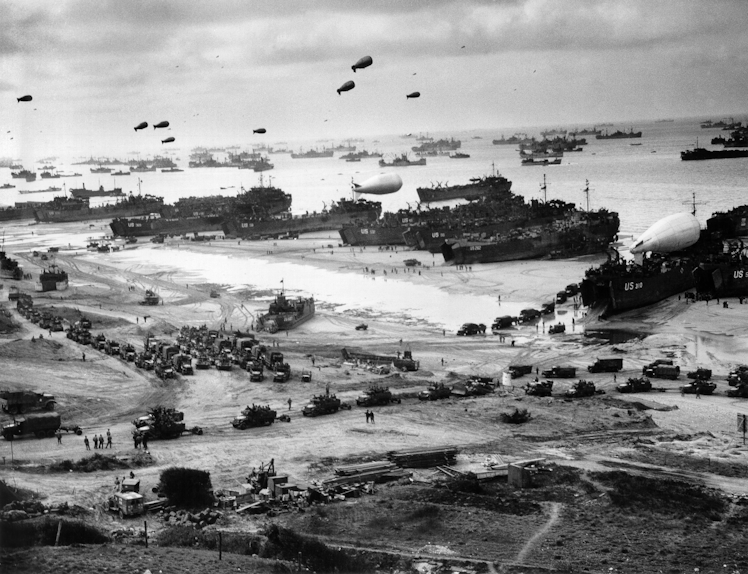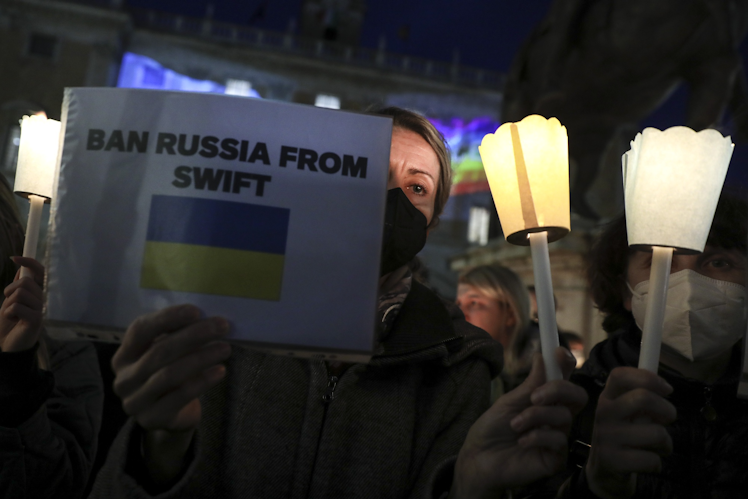Trending Assets
Top investors this month
Trending Assets
Top investors this month
China's Belt & Road Initiative series (Part 1: background)
A recession is on the horizon as the Fed raises rates and stocks continue to perform poorly. Companies that were once the main drivers of the current bull market are now the ones laying off people. In crypto land, the fallout of 3AC, Terra Luna, FTX, and more are igniting a crisis of confidence throughout the world of alternative assets. Realtors are seeing their fortunes reverse overnight as the crowd went from acquiring property to either holding onto or desperate to sell their property.
If there's going to be a recession, we need to know which firm will be the Lehman Brothers of this collapse, and which firm will be the Bear Sterns of this collapse. For context, Bear Sterns collapsed months before Lehman Brothers did. The similarity between the arrest of Bernie Madoff and the arrest of Sam Bankman-Fried are all too similar, enhancing the search for companies that will play Lehman Brothers and Bear Sterns during this coming economic catastrophe.
Some are looking to China, where we have Evergrande, one of the largest real estate companies in China, looking to collapse and send shockwaves throughout the entire Asian property bubble. Others are looking to the US, where Tesla represents the post-2008 market bubble. As Elon Musk, the poster boy of the bubble, sells billions of dollars worth of Tesla shares and puts that money into acquiring and providing life support for Twitter, it's starting to look like Musk is jumping off the Titanic early and is looking to escape the freezing Atlantic sea on a small lifeboat.
Outside of Evergrande, I've heard many people point to China's Belt & Road Initiative as a systemic risk to the world financial system. The Belt & Road Initiative is an ambitious global infrastructure project created and funded by China's government and is happening in 146 countries and 4 continents (Africa, Asia, Europe, and South America). The popular opinion notes these countries as high risk but the reality is that they are lower risk than people think. I'll dive deeper into that aspect of the Belt & Road Initiative in a future part of this series, but for now, let's gain a background on what China is trying to achieve with this "infrastructure imperialism" project.
Post-World War 2 era: when America became the global hegemon

Since the end of World War Two, America became a global hegemon. However, the world didn't become a unipolar world where America was the largest superpower by a mile until the collapse of the Soviet Union in 1991. Despite being in a biopolar post-WW2 world with the Soviet Union, America was able to create a new international system. This new international system consists of institutions like the United Nations (UN), the World Bank (WB), the International Monetary Fund IMF), the World Health Organization (WHO), and the World Trade Organization (WTO).
The US secured its influential spots in all of these international institutions while creating them. Also, they gave other countries opportunities to participate in and run these organizations alongside the US, which is something that no other empire in history has been willing to do with its neighbors. This allows the US empire to maintain influence while conserving attention and resources, something that other empires throughout history haven't considered doing to sustain their influence on the world stage.
"Hegemon" is a political science term for a leading or major power. When the world is bipolar, it means that there are two superpowers. When the world is unipolar, there's only one superpower.
Because the US created these international institutions that the rest of the world relies on today, the US has positioned itself in being a highly influential nation today. The only way that other countries can curb the influence of the US is to create their own international system, which is difficult to do. China is laying the bricks to do that.

The array of sanctions that most nations imposed on Russia for its invasion of Ukraine have scared some nations, most notably China. China has ambitions for taking over Taiwan and because it's afraid of enduring similar sanctions as Russia, it has met with bankers to discuss how it can protect its assets from those sanctions. Assets aren't the only thing China is concerned about. It's also concerned about its economy and its influence on the international stage.
While the US remains the most influential nation in the world thanks to the positions it has secured through the creation of new international institutions, China sees gaps in the way that those institutions run the world.
Take the IMF for example, during its early years, the IMF provided more funding for infrastructure projects. As time went on, it chose to divert funds away from infrastructure and allocated more funds to projects that relate to democracy, public health, and education. At the same time, the IMF is more willing to give money to countries that are run by democracies and have better human rights records. For any infrastructure funding the IMF wants to provide, nations have to give proof that there's economic viability for the project. Many third-world nations have issues with corruption, are run by an authoritarian, or have systems of government that learn more authoritarian than democratic. Those nations have a difficult time coming up with reasons for why their infrastructure projects are economically viable. Furthermore, those same nations continue to receive aid from wealthier countries and feel frustrated that those nations see them as charity cases rather than partners.
China is capitalizing on this opportunity by providing those nations with funding to build infrastructure in their territory. Not only does China get to provide low-interest loans to these countries, but China also gets to use its own materials and send its own workers to build the projects. There are some local workers involved with the building of these infrastructure projects, but, in the end, the majority of the workers are Chinese. And unlike the IMF, China doesn't care if authoritarians run the country or whether the project has economic viability or not. China's way of capitalizing on this opportunity is called the Belt & Road Initiative.
To understand where China gains from helping these countries, don't think about the territories it can seize through the bankruptcy process, which is illegal under international law and under the laws of those recipient nations. Don't think about the interest revenue that Chinese state-owned banks are generating from these deals because the loans that China provides to these recipients are low-interest loans.
Think of it as China's way to:
- create the physical structures and networks needed to protect China's supply chains from its enemies
- build relationships with nations that have attractive demographics for future growth
- revive the glory days of China's ancient past
- create an opportunity to upsell the things needed to create an entirely new world order (and possibly challenge the US Dollar system)
- escape the middle-income trap
- delay the inevitable need of cleansing one's economy from the excesses that came with avoiding the necessary pains of recessions
As we go through this series, you will understand why China's Belt & Road Initiative isn't a systemic risk to the world economy and understand why this project is seen as part of China's strategy to challenge the US Dollar system.
Some will read the entire series and become more bullish on Chinese equities. Others will read the entire series and would want to do a pair trade where they short the Chinese economy while going long on a couple of economies that benefited from the Belt & Road Initiative. New perspectives on business strategy and capital allocation will be created in your minds as you read through this series.
I look forward to hearing your thoughts and questions as we go through this series.
www.ft.com
China meets banks to discuss protecting assets from US sanctions
Officials concerned that measures taken against Moscow could also be applied to Beijing
Already have an account?